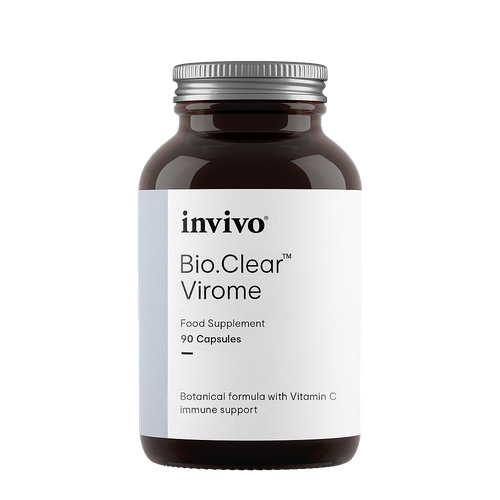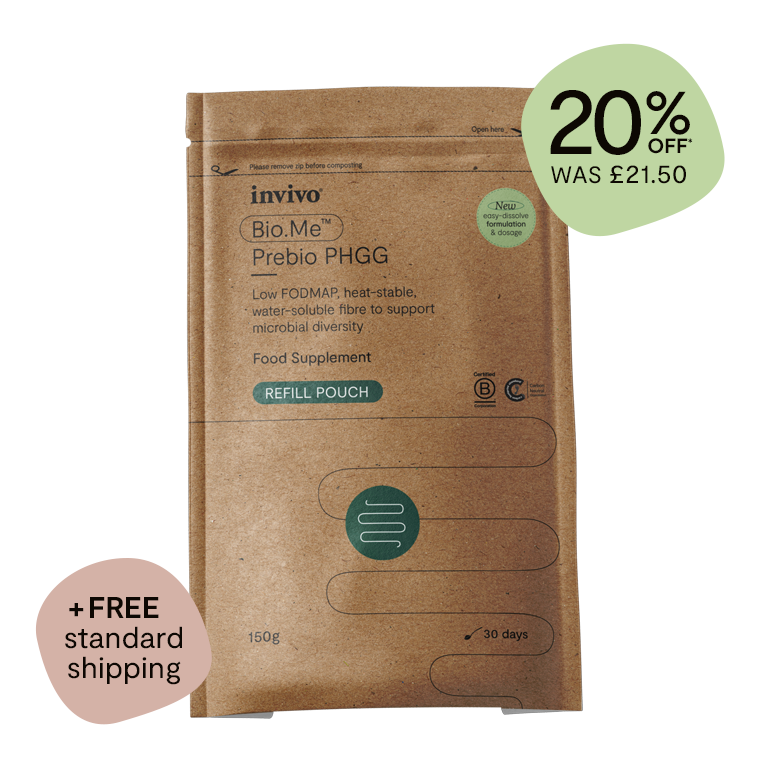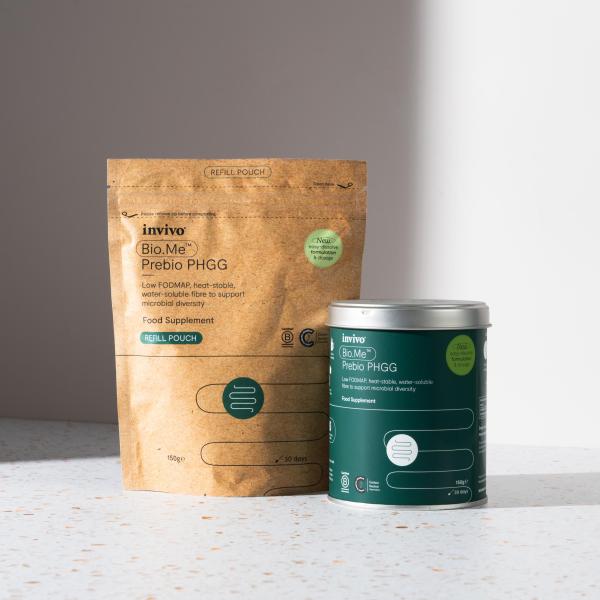Irritable bowel syndrome (commonly known by its acronym – IBS) is a catch-all diagnosis for someone suffering from bowel discomfort such as cramping, abdominal pains, bloating, diarrhoea, or constipation, or sometimes an alteration between the two. IBS can occur alongside other symptoms such as depression, anxiety, food intolerance or sometimes even brain fog.
Diagnosing IBS
IBS is a diagnosis made by first excluding any other known digestive disorders, such as inflammatory bowel disease (IBD) or gastrointestinal cancers. For this reason, stool markers such as Calprotectin (which measures gastrointestinal inflammation) or faecal occult blood (FIT) may be measured using stool tests to rule out any tissue damage associated with these conditions. If these markers come back within healthy reference ranges, and there is no other known reason for the symptoms, IBS is often the diagnosis.
The trouble with IBS being a catch-all diagnosis is that it can present differently in different people. The gastrointestinal system is complex, and there are many variables that can add to the experience of IBS. Managing the condition with diet, lifestyle and supplements is certainly possible, but often the best way to manage IBS is to really unpick some of the processes that cause your variation of IBS so that you have clearer tools to be able to manage it.
Stress-related IBS
Stress often plays a large role in exacerbating the symptoms of IBS and, conversely, IBS can worsen stress and depression. Our guts and brains are linked by nerves which create a bi-directional highway of communication, helping your gut give feedback to your brain and in turn letting your brain give feedback to your gut. While some of that feedback comes from the food that you eat it also comes from chemicals known as metabolites that are created by the microbes in your gut and sensed by your gut nerves.
Stress also makes certain neurotransmitters and hormones that your gut nerves are sensitive to and will change their function when exposed to. Some people, especially those who have had early life stress, are much more susceptible to the impacts of the stress response on the nerves and muscles of the gut, which in turn can create symptoms.
Managing stress-related IBS
Finding tools that help you to manage your stress levels can be a really big help. Perhaps you could try regular meditation or yoga, an exercise that you enjoy that releases stress like regular walking or dancing, talking therapy, or taking supportive botanicals or nutrients that help with stress, such as B vitamins, Magnesium, or the herb Ashwagandha.
You may also wish to try a probiotic that is specific for working on the gut-brain axis, such as our Bio.Me Mind+Mood, which contains live bacteria strains that have been researched extensively in humans for their effects on human mood imbalances, such as anxiety and depression and stress associated bowel symptoms.
Digestive enzyme-related IBS
Each of us possesses stomach acid as well as special enzymes to help us to break down food so that we can absorb it well. If we have limited capacity to break down food, this can create large molecules in the gut that can either cause food intolerances or attract more water into the intestine causing pain and diarrhoea. Equally, whatever we don’t break down is then left in the large intestine to be fermented by gut bacteria, which, in abundance of certain types can cause gas and bloating.
Causes of low digestive enzymes function can be due to things like stress, sometimes other nutritional deficiencies, or other conditions such as diabetes.
Managing digestive enzyme-related IBS
Helping to manage your stress, as above, can often help with digestive capacity. Other tools can include making sure you sit down to relax at mealtimes making sure to chew your food really well. Cooking your own food from scratch using aromatic herbs and spices can help in encouraging your digestive juices to start to flow. Some people who struggle specifically with protein digestion find a tablespoon of an acidic drink like apple cider vinegar, or a squeeze of lemon in water, with their meal helps them to digest it better. Plant-based digestive enzymes supplements also offer great support in increasing your digestive capacity, such as our Bio.Revive Digestive+, with Fennel Seed powder which is a rich source of fibre and digestive calming oils.
Digestive spasm-related IBS
Often in people with IBS may have a gut wall that contracts too often (think diarrhoea) or not enough (as in constipation). These changes in muscle movements can be linked again to stress, but also due to muscular tensions, or sometimes to other conditions such as hypermobility syndromes or dietary impacts.
Managing digestive spasm related IBS
Changes in spasmodity can often be helped with herbs that are known to soothe digestive spasms – peppermint oil is popular, but also herbs such as Fennel, Lemon Balm, Chamomile, Ginger, and Cardamom. These herbs can be used in cooking, brewed in your favourite teapot, or taken in supplements. Our Bio.Revive Kinetic contains herbs that can regulate digestive contractions. Our hero product, Bio.Me Essential is also excellent support for digestive spasms as it contains Lemon Balm and Chamomile, alongside other botanicals that support a healthy microbiome. Magnesium is also a popular nutrient that plays an important role in regulating smooth muscle contractions too.
Also, using a body-work professional such as an Osteopath, or someone who specialises in visceral manipulation (abdominal massage) can be very helpful for some people where muscular tension is involved.
Dysbiosis-Related IBS
Our gut microbiome is vital in supporting a healthy digestive process and plays an important role in feeding back to our nervous system to help regulate our bowel movements. When certain families of bacteria overgrow (putting the gut microbiome in a state of dysbiosis) they can create a gas – such as methane, hydrogen or hydrogen sulphide. Some gas is good for us, but too much can cause discomfort, changes in bowel movements and increased sensitivity to pain in the nerve endings in the gut.
Supporting a healthy gut microbiome, by eating prebiotic foods or using probiotics or fermented foods to grow the bacteria you want, whilst discouraging the growth of the gas-producing bacteria, can really help people manage the symptoms. Infections, such as food poisoning, can also cause the beginnings and ongoing issues with IBS symptoms
Supporting a healthy gut microbiome, by eating prebiotic foods or using probiotics or fermented foods to grow the bacteria you want, whilst discouraging the growth of the gas-producing bacteria, can really help people manage the symptoms. Infections, such as food poisoning, can also cause the beginnings and ongoing issues with IBS symptoms
Managing dysbiosis-related IBS
Testing your gut microbiome is often a good way to begin to get to know intimately the communities of bacteria that are growing inside of you. From there, with the help of your healthcare provider, you can choose a diet and different probiotics and prebiotics that might be right for you.
The prebiotic galacto-oligosachhride (GOS) has been shown to be helpful in reducing symptoms of IBS, and the prebiotic partially hydrolysed guar gum (PHGG) has been shown to be helpful in regulating bowel movements, both for people with constipation and or diarrhoea. The probiotic formulation of Enterococcus faecium Rosell®-26 (R0026) & Bacillus subtilis Rosell®-179 (R0179), contained in our formulation Bio.Me IB+ has been extensively studied in humans with symptoms of IBS and IBD.
Food Intolerance-Related IBS
Often people with IBS have intolerances to certain foods. An intolerance to lactose is quite common as is intolerance to caffeine, chocolate and sometimes even fibrous foods. Fatty foods are often a problem in some people with IBS, this can sometimes be due to poor bile flow or metabolism.
Managing food intolerance-related IBS
Keeping a food diary and removing foods that are a problem from your diet can be a great way to start managing your symptoms. It is worth chatting to healthcare provider before doing this as it is important not to become overly restrictive with your diet as that, in turn, can cause other issues.
Identifying your type of IBS
Working with a health care provider that can take a thorough history of your IBS story is an invaluable tool in identifying your type of IBS and creating the best protocol for managing your personal situation.
Alongside this, testing the gut microbiome with a comprehensive microbiome stool test that rules out anything more serious than IBS can be a great help. Be sure to find a test that includes Calprotectin and FIT (Indicators of IBD), digestive enzymes capacity, bile acids and microbial markers that can assist your health care provider in identifying your type of IBS or any patterns of microbial growth that might be associated with your condition.
Working with a health care provider that can take a thorough history of your IBS story is an invaluable tool in identifying your type of IBS and creating the best protocol for managing your personal situation.
With all this information your health care provider will be able to advise you on dietary, lifestyle and supplements to help you have more control of your IBS.




